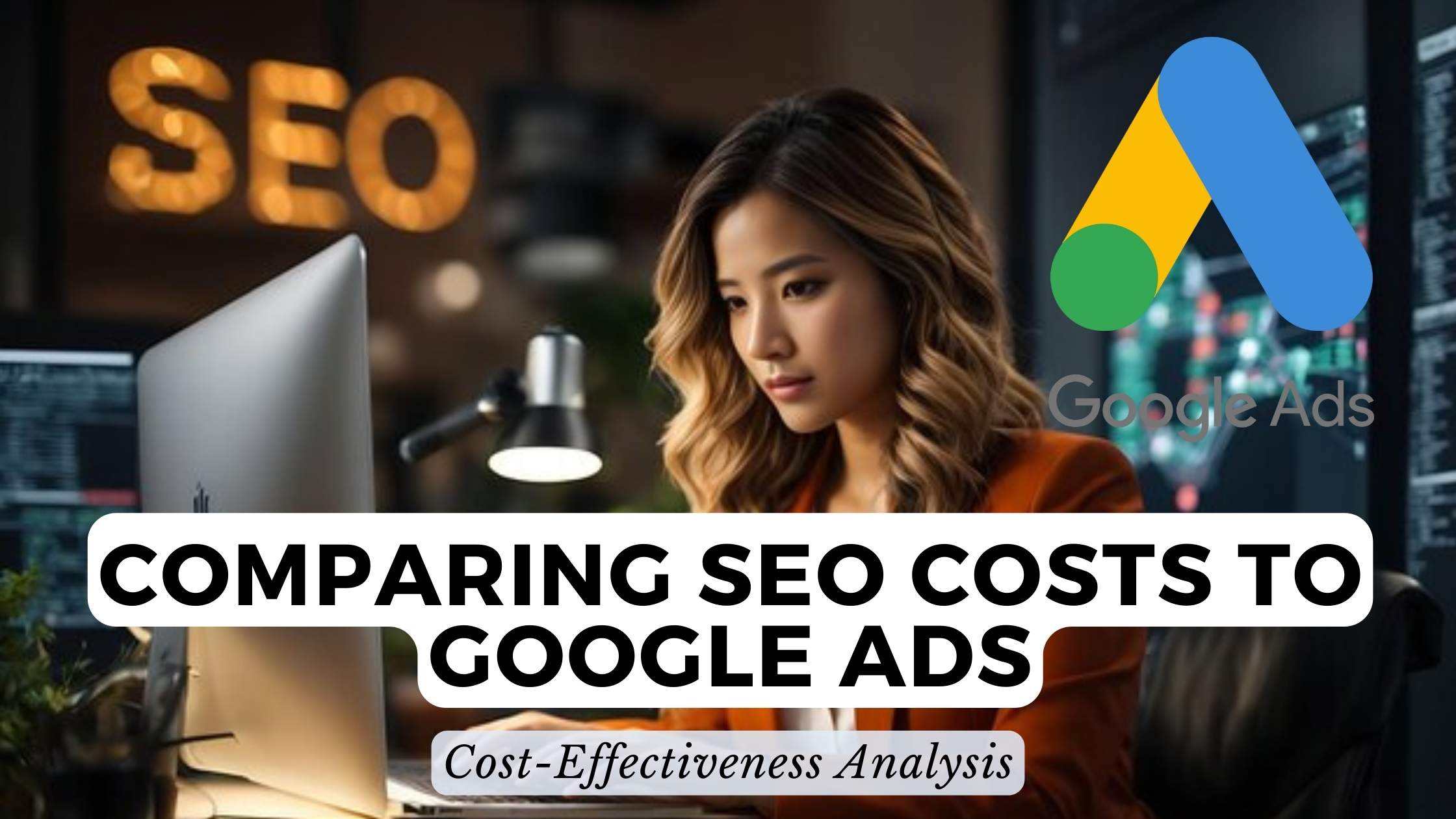Comparing SEO Costs to Google Ads: Cost-Effectiveness Analysis
- Conversational Marketing Software SEO Software Affiliate Marketing Software Marketing Tools


Comparing SEO Costs to Google Ads: Cost-Effectiveness Analysis
In the realm of digital marketing, businesses often face the decision of allocating their budget between Search Engine Optimization (SEO) and Google Ads (formerly known as Google AdWords). Both strategies aim to increase visibility and drive traffic to websites, but they differ in cost structure and effectiveness. In this comprehensive analysis, we’ll delve into the costs associated with SEO and Google Ads, comparing their effectiveness and providing insights to help businesses make informed decisions about their marketing budget allocation.
Understanding SEO Costs
Search Engine Optimization (SEO) involves optimizing a website’s content, structure, and technical aspects to rank higher in organic search engine results. While SEO can yield long-term benefits and sustainable traffic growth, it requires a significant investment of time and resources upfront. The costs associated with SEO include:
- Content Creation: Developing high-quality, keyword-rich content tailored to target audience’s search queries.
- Technical Optimization: Ensuring website architecture, load speed, and mobile-friendliness comply with search engine guidelines.
- Link Building: Acquiring backlinks from reputable websites to improve domain authority and search engine rankings.
- SEO Tools: Investing in tools and software for keyword research, rank tracking, and performance analysis.
Despite the initial investment, SEO offers ongoing benefits such as increased organic traffic, brand visibility, and credibility in the eyes of users and search engines.
Analyzing Google Ads Costs
Google Ads is an advertising platform that allows businesses to display ads on Google search results pages, websites, and other Google properties. Unlike SEO, Google Ads operates on a pay-per-click (PPC) model, where advertisers bid on keywords and pay only when users click on their ads. The costs associated with Google Ads include:
- Keyword Bidding: Advertisers compete in real-time auctions to bid on keywords relevant to their products or services.
- Ad Budget: Setting a daily or campaign-level budget to control overall ad spend.
- Ad Creatives: Designing compelling ad copy and visuals to attract clicks and conversions.
- Ad Management: Monitoring and optimizing ad performance, adjusting bids, targeting settings, and ad creatives to maximize ROI.
While Google Ads offers immediate visibility and potential for high conversion rates, it can be costly, especially for competitive industries and high-value keywords.
Cost-Effectiveness Analysis: SEO vs. Google Ads
When comparing the cost-effectiveness of SEO and Google Ads, several factors come into play:
- Long-Term vs. Short-Term Results: SEO tends to yield gradual, sustainable results over time, while Google Ads can deliver immediate visibility and traffic but may not be as sustainable in the long run.
- Budget Allocation: Businesses with limited budgets may find SEO more cost-effective in the long run, as it offers ongoing benefits without the need for continuous ad spend. However, for short-term campaigns or promotions, Google Ads may provide a more immediate return on investment.
- Competitiveness of Keywords: Highly competitive keywords in Google Ads can drive up costs and diminish ROI, whereas SEO allows businesses to target a broader range of keywords organically without incurring additional costs per click.
Relevant SaaS Products for SEO and Google Ads Management
When it comes to managing SEO and Google Ads campaigns effectively, businesses can leverage a variety of SaaS products and tools. Here are some notable examples:
1. SEMrush:
SEMrush offers a comprehensive suite of SEO and PPC tools, including keyword research, competitive analysis, and ad campaign management. With SEMrush, businesses can optimize their SEO strategies, track keyword rankings, and analyze competitors’ advertising tactics.
2. Ahrefs:
Ahrefs provides powerful SEO tools for backlink analysis, keyword research, and site audit. Additionally, Ahrefs offers a Keyword Explorer tool that helps businesses identify high-value keywords for Google Ads campaigns and assess their competitiveness.
3. Google Ads (formerly AdWords):
Google Ads itself is a SaaS platform that allows businesses to create and manage PPC advertising campaigns across Google’s network. With Google Ads, advertisers can target specific keywords, demographics, and geographic locations to reach their target audience effectively.
4. Moz:
Moz offers a range of SEO tools, including Moz Pro, which provides keyword research, site audits, and rank tracking capabilities. Moz also offers a Link Explorer tool for analyzing backlinks and identifying link building opportunities.
5. Optmyzr:
Optmyzr is a PPC management platform that helps businesses optimize their Google Ads campaigns for better performance and ROI. With features such as automated bidding, ad testing, and campaign optimization, Optmyzr streamlines the process of managing and optimizing PPC campaigns.
Conclusion: Striking the Right Balance
In conclusion, the decision between investing in SEO or Google Ads depends on various factors, including budget, timeframe, and business objectives. While SEO offers long-term benefits and sustainable traffic growth, Google Ads provides immediate visibility and potential for high conversion rates. By leveraging the right mix of SEO and Google Ads, businesses can strike the right balance between cost-effectiveness and performance, driving sustainable growth and success in the competitive digital landscape.
For businesses seeking cost-effective solutions for managing their SEO and Google Ads campaigns, Subscribed.FYI offers a wealth of resources and insights. From SEO tools like SEMrush and Ahrefs to Google Ads management platforms like Optmyzr, Subscribed.FYI provides in-depth information about various SaaS products and their functionalities. By comparing and evaluating different SaaS tools side by side, businesses can make informed decisions and optimize their marketing efforts for maximum impact.
Relevant Links:





